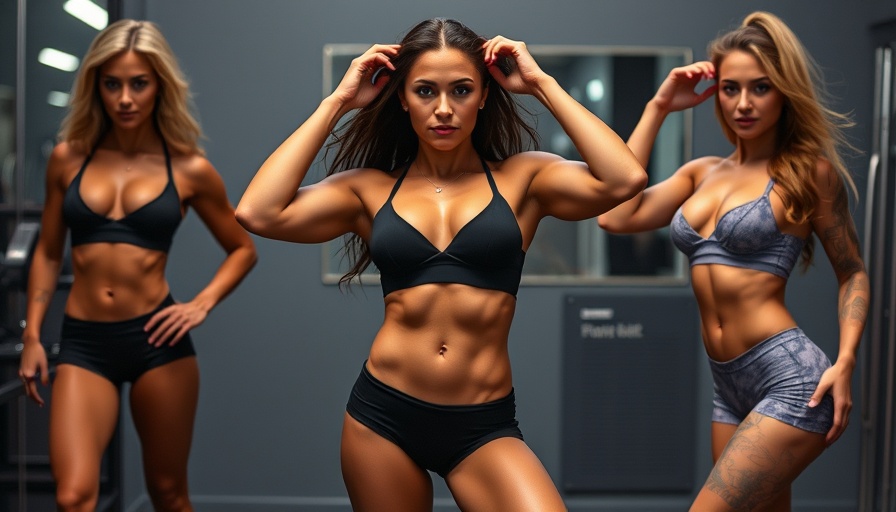
The Cost of Perfection: Unveiling Realities of Fitness Influencers
In an age fueled by social media, fitness influencers have become the stars of our digital universe, boasting enviable physiques and inspiring countless followers. However, beneath the adrenaline-fueled posts and perfectly sculpted bodies lies a hidden truth that many should be wary of. The recent exposure of Brian 'Liver King' Johnson serves as a prime example of the discrepancies between perception and reality. Promoting a diet of raw organs while secretly relying on steroids challenges the ethical standards within a rapidly evolving fitness landscape.
The Rise of the Fitness Influencer
As society continues to idolize the fit and toned, the allure of fitness influencers has only grown. Achieving such heights takes more than just hard work; with increasing competition in the fitness sphere, many influencers resort to performance enhancers or outlandish claims to differentiate themselves. The quick path to earning money through online courses, meal plans, and even coaching becomes tempting. The pressure to project a flawless image pushes many to consider shortcuts, making one question - how much of what we see online is genuine?
A History of Deception in Fitness
This isn't a new phenomenon. From the days of Hulk Hogan, who in the 80s cultivated a wholesome image while participating in steroid use, to modern-day influencers like Liver King, the struggle between authenticity and fabricated results has plagued the fitness industry for decades. What hasn't changed, however, is the impact this has on public perception. Misinformation leads followers to believe that unrealistic goals are attainable with minimal effort, distorting an entire generation's understanding of health and wellness.
The Psychological Impact on Followers
As consumers of fitness content, many young people develop self-esteem issues, spiraling into dangerous comparisons with these influencers. It becomes a vicious cycle where followers equate their worth and health to the standards set by curated images, further exacerbating mental health concerns. This distortion not only undermines their self-image but also fuels a worrying trend of body dysmorphia.
The Need for Transparency
With easy access to supplements and training regimes, regulation in the fitness influencer space is lacking. Transparency around performance enhancers is crucial for maintaining ethical boundaries. Fitness brands and influencers should advocate for honest dialogue around how results are achieved and the realistic nature of fitness goals to cultivate a healthier community.
Empowering Healthy Authenticity
For aspiring fitness enthusiasts, it’s vital to prioritize authentic practices. Engaging in sustainable training routines and nurturing a healthy mindset can lead to optimal health and wellness. Choosing local alternatives, such as health and wellness centers in San Antonio that focus on natural approaches to fitness and well-being, reminds us that health doesn't need to be packaged in perfection.
Making Meaningful Choices in Wellness
Knowing the landscape of fitness products—from nutritional supplements to alternative medicine—empowers individuals to make informed decisions. Reading health and wellness articles can inspire a balanced, holistic approach to living. Understanding what truly promotes vitality will ensure that health becomes the new fitness trend, rather than muscle mass masqueraded by filters.
Conclusion: A Call for Empowerment in Health
In navigating a world filled with filtered physiques and unachievable standards, it's essential for consumers to seek authentic connections and guidance within the health and wellness community. Understanding the integrity behind successes and fostering personal journeys towards optimal health is the real key to a balanced lifestyle. Let’s remember that the journey to wellness is not about how we look, but how we feel and the choices we make every day for a better life.
 Add Row
Add Row  Add
Add 




 Add Row
Add Row  Add
Add 


Write A Comment